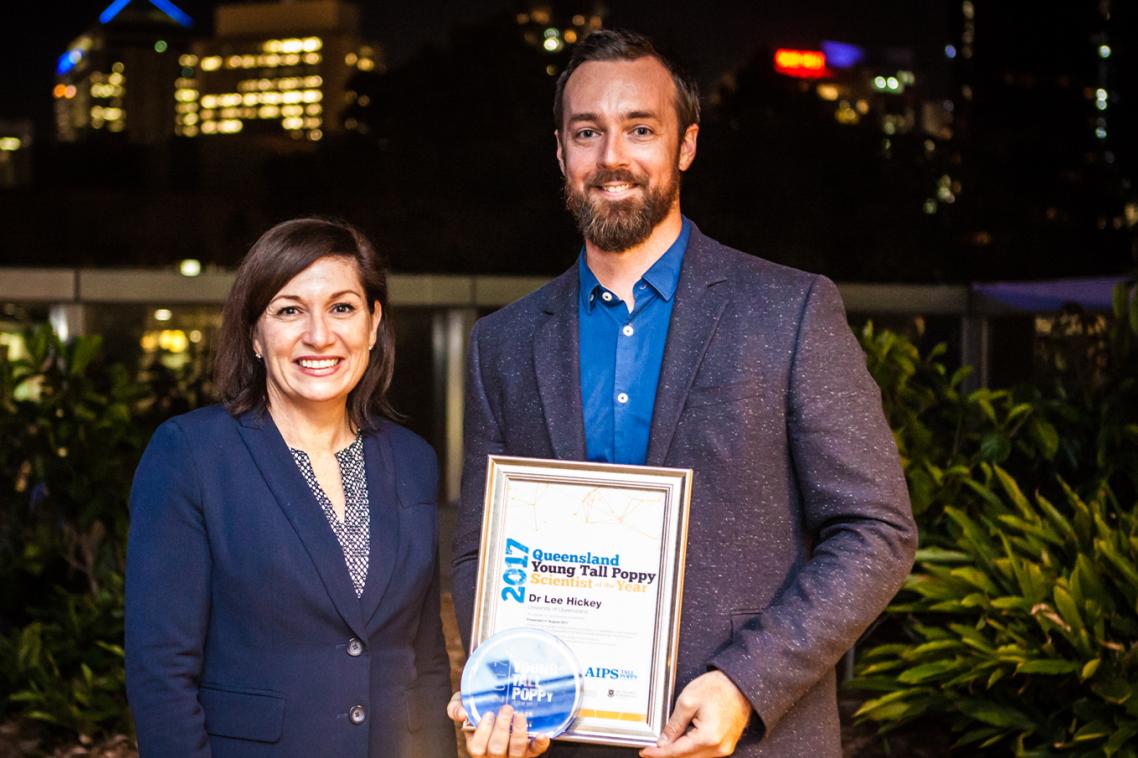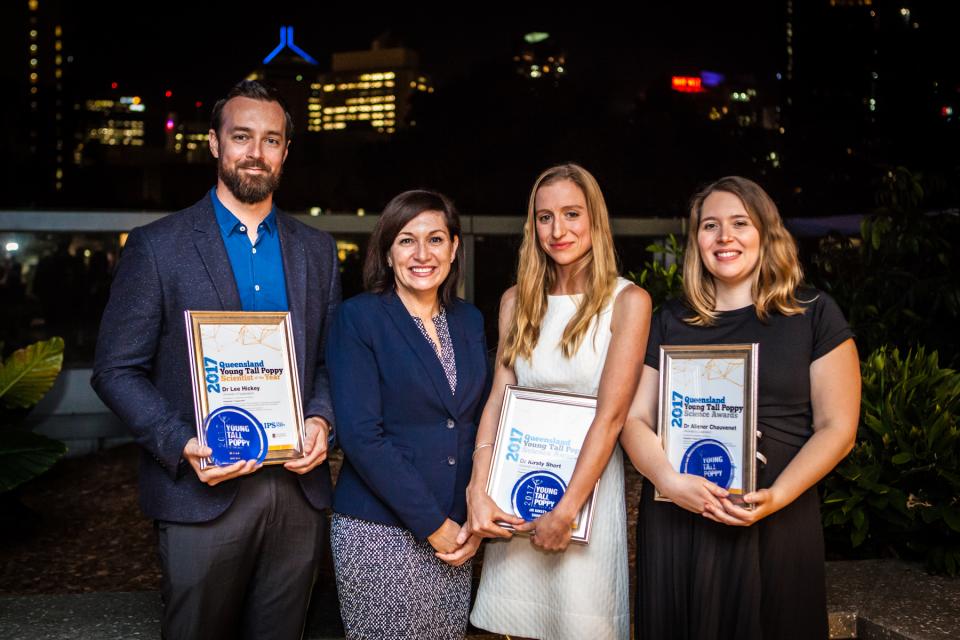The sky’s the limit for our Young Tall Poppies

Grain research technology that will help combat food shortages stemming from climate change and a burgeoning world population have helped a young researcher claim the title of Advance Queensland Young Tall Poppy Scientist of the Year.
The University of Queensland’s Dr Lee Hickey received the award on Friday.
Dr Hickey, who works with the Queensland Alliance for Agriculture and Food Innovation, has played a pivotal role in developing ‘speed breeding’ – a fast-track technology that enables six generations of wheat and barley to be produced in a single year.
He has also identified significant grain traits and genes, including those for disease resistance and useful for creating designer root systems in grain crops.
He is a passionate science communicator and respected researcher.
Science Minister Leeanne Enoch congratulated Dr Hickey along with the 11 other Queensland finalists.
“Our talented young Queensland scientists are working on innovations that will help to increase our competitiveness in world markets, address environmental issues and improve the health and well-being of Queenslanders,” Ms Enoch said.
The finalists included UQ Faculty of Science researcher and conservation champion Dr Alienor Chauvenet and UQ Faculty of Medicine virologist Dr Kirsty Short.

Her research has shown that tackling conservation losses with the right action at the right time can save more species at the same cost as less effective approaches.
Dr Chauvenet organised the first ever Australian Soapbox Science event in Brisbane.
Dr Kirsty Short’s research has highlighted the mechanisms by which asthma, obesity and diabetes can increase the severity of viruses such as influenza.
Her findings will help to design future drugs to help the growing number of people suffering with chronic conditions.
Dr Short is a passionate advocate of vaccination and a keen science communicator.
The annual Young Tall Poppy Science Celebration was hosted by the Australian Institute of Policy and Science in partnership with the Office of the Queensland Chief Scientist to coincide with National Science Week.
Photo : L to R - UQ Tall Poppies Dr Lee Hickey, Minister Enoch, Dr Kirsty Short, Dr Alienor Chauvenet
Media: UQ Communications, communications@uq.edu.au, 07 3365 1120.
Related articles

New data reveals how Australia’s threatened reptiles and frogs are disappearing – and what we have to do

Long-sought environmental law reform is finally here. But will the compromise deal actually protect nature?
Media contact
UQ Communications
communications@uq.edu.au
+61 429 056 139
